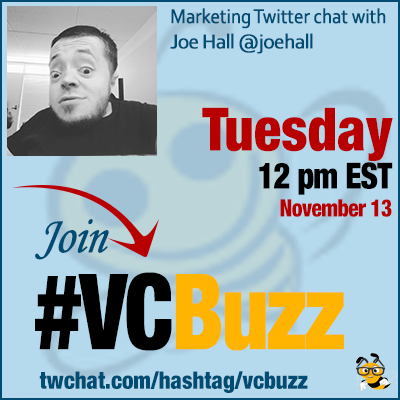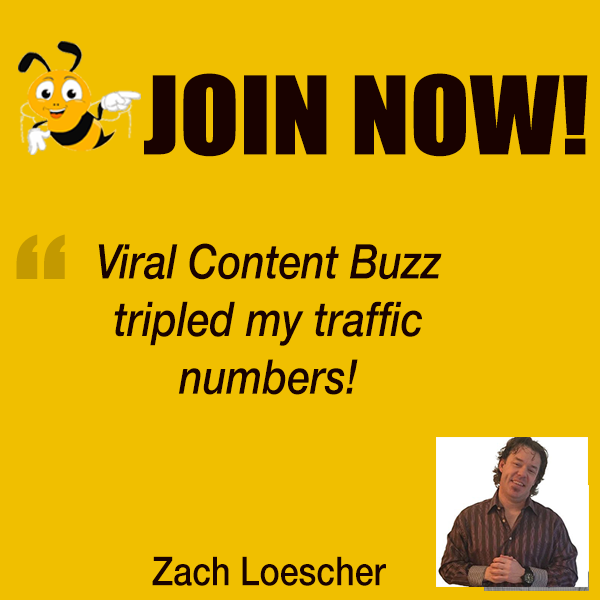 Whenever you publish more and more content to your blog, you keep thinking about all those articles that you published months and years ago.
Whenever you publish more and more content to your blog, you keep thinking about all those articles that you published months and years ago.
All content, even evergreen content, needs updates at some point. The world is changing and it’s natural that you want to give your readers up-to-date information.
But what’s the best way to publish those updates? How to get more SEO benefits from those edits. Is there a way to increase your traffic by updating your old content.
Let’s discuss!
***Add #VCBuzz chats to your calendar here.
***Please sign in here to follow the chat -> twchat.com/hashtag/vcbuzz
About Joe
Joe Hall is a web developer, writer, marketer, and artist that has worked on both the national and local levels around a variety of diverse topics and technologies.
Joe Hall is a Senior Organic Search Strategist at Perficient Digital @PRFTDigital, where he advises enterprise brands on how best to gain more organic traffic from the search engines.
Follow Joe at his personal blog at hallanalysis.com and connect to him on Linkedin
Questions we discussed
Q1 How did you become a digital marketer? Please share your career story!
I started building web sites in the 90s, and then in college for many nonprofits. Then started my own company and many of my clients wanted marketing/SEO as well. So eventually SEO became the only thing we did. Now I am a Senior SEO at perficientdigital.com
— Sana Knightly (@SanaKnightly) November 13, 2018
@SanaKnightly Yeah those were the days! LOL #vcbuzz
— Joe Hall ☕️ (@joehall) November 13, 2018
I started out on the print side and transitioned about 20 years ago to digital (websites and banners) #vcbuzz
— Bernie Fussenegger (@B2the7) November 13, 2018
Q2 Last year you published an important update on how changing dates on your old content can actually annoy Google. Could you please elaborate on that? Should publishers always avoid changing the publication date? How to best reflect that your content has been updated and when?
Google has always made providing the most relevant information for each query their #1 priority. So if you are simply changing the date on content with out changing any time sensitive info on the page, that’s not a good idea. If you want update the date on the page create a new piece of content with fresh info. If there is no fresh info, then explore other ways to optimize the page.
Could you give us examples of the "other ways to optimize the page" Joe? @joehall #vcbuzz
— Sana Knightly (@SanaKnightly) November 13, 2018
Sure, so it could be technical optimizations, increased internal linking to it, it could be updates to the meta tags, you might want to even add new images etc.
Hi Joe @joehall Could you clarify re: A2? If you are updating the content, do you advise republishing it on the same URL with a new date? I typically put "Revised xx/xx/2018; Originally published xx/xx/2015" (or whenever) at the bottom when I republish #vcbuzz
— Gail Gardner (@GrowMap) November 13, 2018
I guess what ever makes sense for your site. Follow what you would normally do for new content.
I read the link you shared @joehall It sounds like if you only update content periodically and are not mass-editing dates on existing content that it is probably good. #vcbuzz
— Gail Gardner (@GrowMap) November 13, 2018
How are you approaching data and the ability to provide relevant, personalized and 1:1 content for each customer (if you can identify them)? @joehall #vcbuzz
— Bernie Fussenegger (@B2the7) November 13, 2018
That’s a pretty broad question. I think that would large depend on the context of what you are trying to achieve. Do you have an example?
This really goes more into the data brands are collecting and how they are using that data to build better customer experiences and delivering more relevant content to that customer #vcbuzz
— Bernie Fussenegger ?✌️the7️⃣ (@B2the7) November 13, 2018
That is still pretty broad! LOL every brand will use and collect data differently. #vcbuzz At the end of the day, take risk, and be creative with your data, put the user first, and build content that empowers them and you at the same time.
?And don’t forget opportunities for internal links between pages to help website visitors (and Google) “connect the dots” between old/new information ; )#SEO #VCBuzz
— Rebecca Murtagh ? (@VirtualMarketer) November 13, 2018
Q3 Overall, should publishers ever care to update old content or should they rather publish new articles with updated data? What are the PROs and CONs of both the approached?
It depends on the goal. At PRFT we provide something called a “striking distance” report. Some others call it a low hanging fruit report, this is content that ranks at the top of page 2 for terms. In that instance, updating the content might be a great idea.
However if a page is already ranking really well and you don’t want to ruin existing rankings, you should consider new content with fresh info. And link internally to it.
A3 Some sites have a major pillar post that they update with the latest every year. They use the same URL so that they keep building more links to that page. #vcbuzz
— Gail Gardner (@GrowMap) November 13, 2018
Joe, are you saying it's better to add fresh content to a new page than to add fresh content (updates) to an existing page? I guess it depends on how much additional info you have? #vcbuzz
— Don Sturgill (@DonSturgill) November 13, 2018
I am saying that it depends on where it is ranking, and what your goals are.
Alternative terms and maybe fresh language. #VCBuzz
— Joe Hall ☕️ (@joehall) November 13, 2018
Yes! Also things like explanations answers to frequent questions (Google is being very generous these days with displaying snippets at position "0" Zero at top of SRPs ) #SEO #VCBuzz
— Rebecca Murtagh 💡 (@VirtualMarketer) November 13, 2018
Part of the conversation for me dials it back a bit and is more along the lines of best practices for getting on page 1 or page 2 for specific keywords. #vcbuzz
— Tawanna B Smith, MPP (@TawannaBSmith) November 13, 2018
Q4 What are other (good and bad) ways to keep your old content up-to-date? What are PROs and CONs of each? Is there a perfect way to do that?
Internal linking is huge, and I know that isn’t “content” per say, but it will help that old content get some fresh eyes. Maybe on a regular basis review any recent news about the content topic and seek ways to add it. I always say its better to add to content then edit.
I am more leaning towards adding / editing too. Keeps your site more organized, grows an article over time turning into an ultimate resource #VCBuzz https://t.co/bBpPZMcCal
— Ann Smarty (@seosmarty) November 13, 2018
Also consider doing some fresh link building to old content as well… if it got links in the past, why can’t it get them now?
Adding things like Structured Data can also help old content take advantage of new SERP features. Updating content for Mobile First Indexing and speed is also crucial.
In a nutshell it all comes down to is there new topic / keyword opportunity there (if so, create new) #vcbuzz
— Ann Smarty (@seosmarty) November 13, 2018
How important is keyword research today, Joe? Do you have tips for how to approach finding the best terms for SEO? #vcbuzz
— Don Sturgill (@DonSturgill) November 13, 2018
Start with your base terms, and then think of all of the supporting terms. These aren’t terms that you are trying to rank for, but rather they are words that are related to your target in some way. Use them all and you will have well rounded content.
Q5 What are your favorite content management tools?
Of course I am going to say WordPress. LOL But also have been using @gathercontent and several others. Even Google docs has been good lately for collaboration.
Another VERY important thing to remember when updating content is knowing WHEN TO STOP. Over optimization is a thing, and can make rankings and traffic worse. Please always remember that!!!
I'd love to know if you agree with this @JoeHall How To Decide What Blog Content To Delete; 89% Traffic Increase https://t.co/ScsRBXR8YZ #vcbuzz
— Gail Gardner (@GrowMap) November 13, 2018
Yes we do a very similar analysis here that also includes ranking data from SEMRush. I think thats a really smart way to approach deleting content. And honestly that level of analysis is the only way I feel comfortable do it.
Featured snippet tool is an easy way to see which of your content is ranking well https://t.co/WoRdqBUEMa #vcbuzz
— Gail Gardner (@GrowMap) November 13, 2018
Our previous SEO chats:
- SEO Coaching and Findability Principles with Heather Lutze @HeatherLutze
- Domains and SEO: Myths and Tips with Bill Hartzer @bhartzer
- Marketing Twitter Chat with International SEO Consultant Aleyda Solis @aleyda
- Essential Steps of an SEO Audit with @MattLacuesta #VCBuzz
- SEO Then and SEO Now with Bonnie Burns @Burnsie_SEO #vcbuzz




Leave a Reply